《中國的出口管制》白皮書(雙語全文)
新華網(wǎng) 2021-12-29 14:00

四、積極開展出口管制國際交流與合作
IV. Promoting International Exchanges and Cooperation
中國一貫重視并積極開展出口管制國際交流與合作,推動(dòng)增信釋疑、互學(xué)互鑒,促進(jìn)出口管制的國際協(xié)調(diào),促進(jìn)出口管制物項(xiàng)合規(guī)貿(mào)易,為提升國際出口管制的公正性、開放性作出中國貢獻(xiàn)。
As an active participant, China prioritizes international exchanges and cooperation on export controls. It endeavors to boost mutual trust, ease doubts, increase mutual learning, strengthen international coordination, and promote trading in export-controlled items that is consistent with compliance requirements, so as to contribute to a more open and just regime for international export controls.
(一)開展雙邊交流與合作
1. Conducting Bilateral Exchanges and Cooperation
中國在相互尊重、平等互利的基礎(chǔ)上,積極開展出口管制雙邊交流與合作,通過對(duì)話協(xié)商增進(jìn)互信,體現(xiàn)中國開放合作的態(tài)度,促進(jìn)雙邊合作互利共贏。
Based on mutual respect, equality and mutual benefit, China engages in international exchanges and cooperation on export controls, in order to increase mutual trust through dialogue and consultation. These efforts reflect China's open and cooperative attitude, and facilitate win-win cooperation.
積極促進(jìn)出口管制物項(xiàng)合規(guī)貿(mào)易。中國與多個(gè)國家和地區(qū)建立政府間機(jī)制,開展政府間磋商、研討,與企業(yè)對(duì)話等活動(dòng),交流經(jīng)驗(yàn)做法。與有關(guān)國家出口管制主管部門保持對(duì)話,加強(qiáng)出口管制領(lǐng)域交流合作。中國與俄羅斯等國簽署雙邊協(xié)議,相互出具《最終用戶和最終用途說明》,推進(jìn)互信合作。
China promotes trading in export-controlled items that is consistent with compliance requirements. China has established inter-governmental mechanisms with various countries and regions to share experience and practices through government-to-government consultations and discussions and dialogues with business. China has also maintained communication with export control authorities in other countries to strengthen exchanges and cooperation. To build up mutual trust and cooperation, China has signed bilateral agreements with Russia and several other countries for mutual issuing of end-user and end-use certificates.
深入開展雙邊出口管制、防擴(kuò)散交流與合作。中國與美國多次舉辦出口管制物項(xiàng)識(shí)別研討會(huì),增進(jìn)執(zhí)法技術(shù)交流。在核領(lǐng)域,中國與美國、俄羅斯、英國、法國、德國以及歐盟機(jī)構(gòu)等保持磋商與交流,并依法通過信息交流和執(zhí)法合作,聯(lián)合打擊違法活動(dòng)。在監(jiān)控化學(xué)品領(lǐng)域,中國在《禁止化學(xué)武器公約》框架下與其他締約國開展雙邊交流與合作,并赴德國、西班牙、韓國、日本等國開展最終用戶和最終用途核查工作。中國已與10余個(gè)國家建立副部級(jí)、司局級(jí)戰(zhàn)略安全、軍控與防擴(kuò)散磋商機(jī)制,相互分享防擴(kuò)散領(lǐng)域經(jīng)驗(yàn)做法,對(duì)增進(jìn)相互理解與合作發(fā)揮了重要作用。
China is deeply involved in bilateral exchanges and cooperation on export controls and non-proliferation. China and the US have held multiple seminars on identifying export-controlled items to promote exchanges on enforcement skills. In nuclear non-proliferation, China has maintained consultations and exchanges with the US, Russia, the UK, France, Germany, and the EU to take resolute action against illegal activities through information exchanges and cooperation on enforcement. With respect to controlled chemicals, China has engaged in bilateral exchanges and cooperation with other States Parties under the framework of the CWC, and conducted end-user and end-use verifications in Germany, Spain, the Republic of Korea, Japan and other countries. China has established consultation mechanisms with more than ten countries at vice-ministerial and director-general levels on strategic security, arms control, and non-proliferation, which, as platforms for sharing non-proliferation experience and practices, have played a crucial role in increasing mutual understanding and cooperation.
除政府間合作外,中國積極支持出口管制非政府間交流與合作。商務(wù)部國際貿(mào)易經(jīng)濟(jì)合作研究院、中國軍控與裁軍協(xié)會(huì)、中國現(xiàn)代國際關(guān)系研究院、中國核能行業(yè)協(xié)會(huì)等機(jī)構(gòu)積極與相關(guān)國家的研究機(jī)構(gòu)等開展非政府間交流、學(xué)術(shù)研究、民間國際交往活動(dòng),通過聯(lián)合舉辦研討會(huì)、論壇和實(shí)地參觀等方式,加深了解,增進(jìn)友誼。
In addition to inter-governmental cooperation, China also supports non-governmental exchanges and cooperation on export control. Chinese institutions such as the Chinese Academy of International Trade and Economic Cooperation of the Ministry of Commerce, the China Arms Control and Disarmament Association, the China Institute of Contemporary International Relations, and the China Nuclear Energy Association, have held non-governmental exchanges, conducted academic research, and engaged in international people-to-people interactions with research institutions of other countries. Through symposiums, forums and on-site visits, these institutions have increased mutual understanding and friendship with their foreign counterparts.
(二)加強(qiáng)多邊對(duì)話和磋商
2. Strengthening Multilateral Dialogue and Consultation
中國重視通過聯(lián)合國及出口管制領(lǐng)域的多邊機(jī)制,對(duì)全球性問題、突發(fā)性事件保持溝通與磋商,以促進(jìn)世界和平和地區(qū)安全。
As part of the effort to promote world peace and regional security, China prioritizes communication and consultation on global issues and emergencies via the UN and multilateral export control mechanisms.
中國主張,聯(lián)合國作為最具普遍性的國際組織,應(yīng)發(fā)揮核心作用,平衡處理防擴(kuò)散與和平利用的關(guān)系,保障發(fā)展中國家和平利用科技進(jìn)步成果的合法權(quán)利。2021年12月,在中國的倡議下,第76屆聯(lián)大通過“在國際安全領(lǐng)域促進(jìn)和平利用國際合作”決議,強(qiáng)調(diào)和平利用科技及相關(guān)國際合作對(duì)經(jīng)濟(jì)、社會(huì)發(fā)展的重要性,敦促各國在履行防擴(kuò)散國際義務(wù)的同時(shí),取消對(duì)發(fā)展中國家和平利用科技的不合理限制。該決議的通過標(biāo)志著在聯(lián)大框架下開啟了開放、包容、公正的對(duì)話進(jìn)程,對(duì)維護(hù)各國和平利用科技的合法權(quán)益、推動(dòng)科技進(jìn)步成果普惠共享、應(yīng)對(duì)科技發(fā)展帶來的安全挑戰(zhàn)具有重要意義,有助于推動(dòng)《不擴(kuò)散核武器條約》《禁止化學(xué)武器公約》《禁止生物武器公約》等國際條約得到更加全面、平衡的執(zhí)行,有助于現(xiàn)有防擴(kuò)散、出口管制相關(guān)機(jī)制的成員國加強(qiáng)同其他國家的對(duì)話交流,更好地服務(wù)于普遍安全與共同發(fā)展,符合整個(gè)國際社會(huì)的共同利益。中國將繼續(xù)與各方一道,推進(jìn)聯(lián)大框架下的對(duì)話進(jìn)程。
China advocates that as the most representative international organization, the UN should play a central role in finding the right balance between non-proliferation and peaceful uses, and in safeguarding the legitimate rights of developing countries to peaceful uses of technological advances. In December 2021, the 76th Session of the UN General Assembly (UNGA) adopted the China-initiated resolution "Promoting International Cooperation on Peaceful Uses in the Context of International Security", which emphasizes the significance of international cooperation in science and technology for peaceful purposes in facilitating economic and social development, and urges all Member States, without prejudice to their non-proliferation obligations, to lift unnecessary restrictions on peaceful use in developing countries. The adoption of this resolution marks the beginning of an open, inclusive and just dialogue process under the UNGA framework, which is in line with the common interests of the international community. It represents a critical contribution to safeguarding the legitimate rights and interests of all countries concerning peaceful uses of technology, ensuring that scientific and technological dividends are widely shared to the benefit of all, and addressing the security challenges arising from scientific and technological progress. It is also conducive to fuller and more balanced implementation of the NPT, the CWC, the BWC and other international treaties, and to greater dialogue and exchanges between other countries and State Members of the existing mechanisms on non-proliferation and export control, to better serve shared security and development. China will continue to work with all other parties to advance this dialogue process under the UNGA framework.
2004年4月,聯(lián)合國安理會(huì)一致通過第1540號(hào)決議,要求各國加強(qiáng)對(duì)大規(guī)模殺傷性武器及相關(guān)材料和技術(shù)的國內(nèi)管理和出口管制,防范和打擊非國家實(shí)體獲取上述物項(xiàng)。該決議是安理會(huì)第一個(gè)專門的防擴(kuò)散決議,有利于在國際法基礎(chǔ)上推動(dòng)和加強(qiáng)國際合作。中國積極支持并參加安理會(huì)1540委員會(huì)等聯(lián)合國框架下的防擴(kuò)散工作,積極推動(dòng)安理會(huì)第1540號(hào)決議全面審議進(jìn)程。為推進(jìn)決議在亞洲地區(qū)的執(zhí)行,中方與安理會(huì)1540委員會(huì)于2015年、2017年、2019年,分別在中國青島、西安、廈門舉辦了三屆“亞太地區(qū)防擴(kuò)散國家聯(lián)絡(luò)點(diǎn)培訓(xùn)班”。
In April 2004, the UN Security Council unanimously adopted Resolution 1540 (UNSCR 1540), which requires all countries to reinforce domestic management and export control of WMD and relevant materials and technologies, and to prevent and combat the proliferation of such items among non-state actors. As the first UN Security Council resolution dedicated to non-proliferation, this advances international cooperation under international law. China actively supports and participates in non-proliferation efforts under relevant UN frameworks, including the 1540 Committee, and works vigorously to promote the comprehensive review of UNSCR 1540. To strengthen its enforcement in Asia, China and the 1540 Committee hosted three training sessions - "Training Course for the 1540 Points of Contact in the Asia-Pacific Region" - in the Chinese cities of Qingdao, Xi'an and Xiamen in 2015, 2017 and 2019.
2004年,中國加入“核供應(yīng)國集團(tuán)”。中國嚴(yán)格履行成員義務(wù),積極參與“集團(tuán)”政策磋商、清單制定、信息交流等事務(wù),與其他成員加強(qiáng)出口管制合作。中國根據(jù)“集團(tuán)”準(zhǔn)則,對(duì)《核出口管制條例》《核兩用品及相關(guān)技術(shù)出口管制條例》作出相應(yīng)修訂,將進(jìn)口國接受全面保障監(jiān)督作為核出口條件,并與“集團(tuán)”管制清單保持同步,定期修訂出口管制清單。
Since its accession to the NSG in 2004, China has conscientiously assumed its membership obligations, actively taken part in policy consultations, drawing up lists, information sharing, and other NSG matters, and stepped up export control cooperation with other NSG members. Following the NSG Guidelines, China has amended Regulations of the People's Republic of China on the Control of Nuclear Export and Regulations of the People's Republic of China on the Control of Nuclear Dual-use Items and Related Technologies Export. In the amendments, acceptance of comprehensive safeguards and oversight by the importing country is a precondition for the export of nuclear materials, and the export control lists are routinely updated in sync with the NSG's control list.
2004年,中國正式申請(qǐng)加入“導(dǎo)彈及其技術(shù)控制制度”并與其保持溝通交流,舉辦5輪對(duì)話會(huì),就導(dǎo)彈領(lǐng)域的出口管制制度、管制清單、執(zhí)法情況及中國加入等問題進(jìn)行交流和磋商。中國在制定導(dǎo)彈出口管制條例和清單時(shí),借鑒了“制度”準(zhǔn)則和技術(shù)附件。
China officially applied to join the Missile Technology Control Regime (MTCR) in 2004, and has since maintained communication and exchanges, with five rounds of dialogue focusing on China's accession and issues regarding control systems, lists and the enforcement of missile export controls. China referred to the MTCR Guidelines and Annex when formulating its missile export control regulations and control list.
中國同“瓦森納安排”保持溝通與交流,雙方舉行了5輪對(duì)話會(huì),就常規(guī)武器及相關(guān)兩用物項(xiàng)和技術(shù)的出口管制原則、清單及“最佳操作規(guī)范”等問題深入交換意見。
China has maintained communication and exchanges with the Wassenaar Arrangement. The two sides have held five rounds of in-depth dialogue on control principles, lists, and best practices pertaining to the export of conventional arms and relevant dual-use items and technologies.
中國與“澳大利亞集團(tuán)”保持接觸和交流,雙方舉行6輪磋商,就生物和化學(xué)領(lǐng)域防擴(kuò)散形勢(shì)、《禁止化學(xué)武器公約》和《禁止生物武器公約》履約情況、“澳大利亞集團(tuán)”運(yùn)作情況等交換意見。
China has been involved in six rounds of consultation with the Australia Group (AG) on biological and chemical non-proliferation, implementation of the CWC and the BWC, and operation of the AG.
中國愿同國際社會(huì)共同推動(dòng)出口管制相關(guān)多邊機(jī)制保持公正性和開放性,增加成員的代表性和多樣性,堅(jiān)持走團(tuán)結(jié)合作之路,抵制歧視性做法,攜手應(yīng)對(duì)各種全球性問題,共同創(chuàng)造人類更加美好的未來。
China is willing to work with the international community to ensure that multilateral export control mechanisms are just and open, and to increase the diversity and breadth of representation in their membership. China upholds solidarity and cooperation, opposes discriminatory approaches, and advocates that all countries work together to address serious global issues and create a brighter future for humanity.
結(jié)束語
Conclusion
當(dāng)前,國際格局深刻演變,國際出口管制面臨諸多挑戰(zhàn),建設(shè)一個(gè)持久和平、普遍安全、共同繁榮、開放包容、清潔美麗的世界任重道遠(yuǎn)。加強(qiáng)國際合作,謀求共同安全與發(fā)展,需要各國長期不懈的共同努力。
The international landscape is undergoing profound changes, and the world is rife with challenges in the field of export control. It is no easy task to build an open, inclusive, clean and beautiful world that enjoys lasting peace, universal security, and common prosperity. All countries need to work together, relentless in their determination to strengthen international cooperation and pursue shared security and development.
中國將堅(jiān)持總體國家安全觀,不斷推進(jìn)出口管制體系和能力建設(shè),強(qiáng)化管理,嚴(yán)格執(zhí)法,推進(jìn)合規(guī)建設(shè),有效應(yīng)對(duì)新形勢(shì)下面臨的風(fēng)險(xiǎn)和挑戰(zhàn)。中國將擔(dān)當(dāng)大國責(zé)任,履行國際義務(wù)和承諾,開展出口管制交流與合作,同各國一道,推進(jìn)國際出口管制治理健康發(fā)展,為構(gòu)建人類命運(yùn)共同體作出積極貢獻(xiàn)。
Employing a holistic approach to national security and export controls, China will continue to strengthen its systems, increase capacity, reinforce administration, step up enforcement, and promote compliance, so as to effectively address the risks and challenges under the new circumstances. China will shoulder its due responsibilities as a major country by fulfilling its international obligations and commitments, by participating in exchanges and cooperation on export controls, and by joining forces with all other countries to build sound international export control governance as part of a global community of shared future.









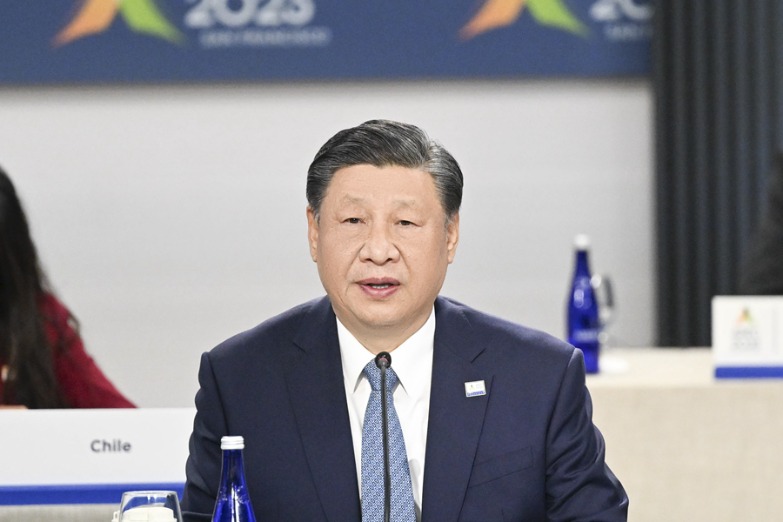
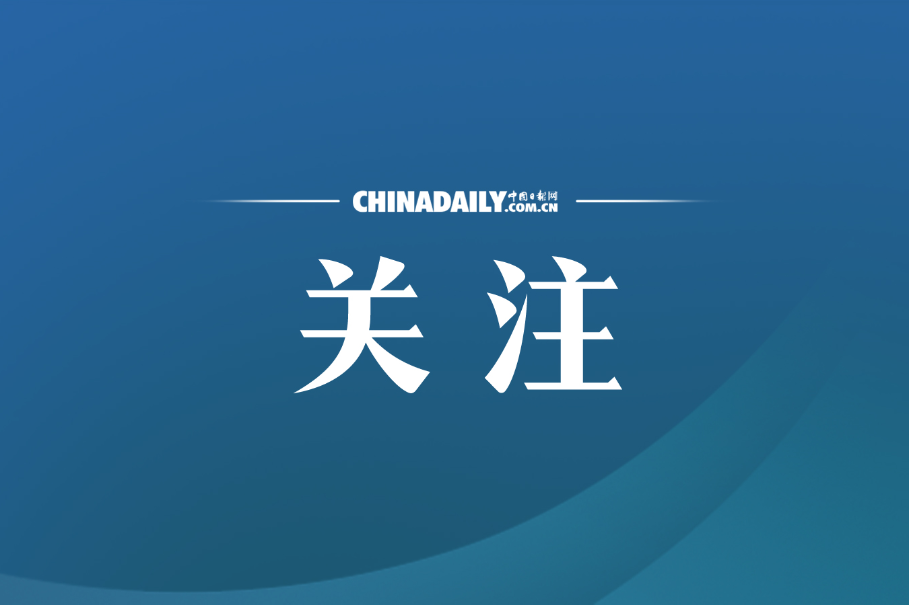
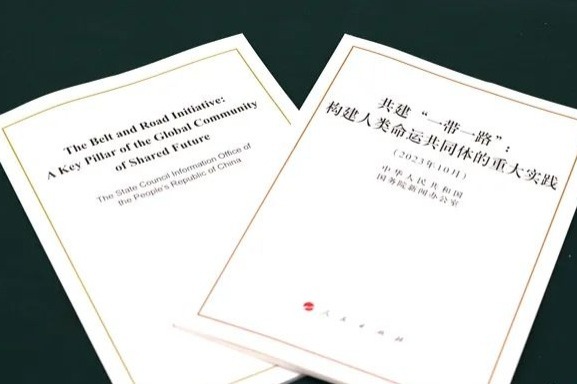
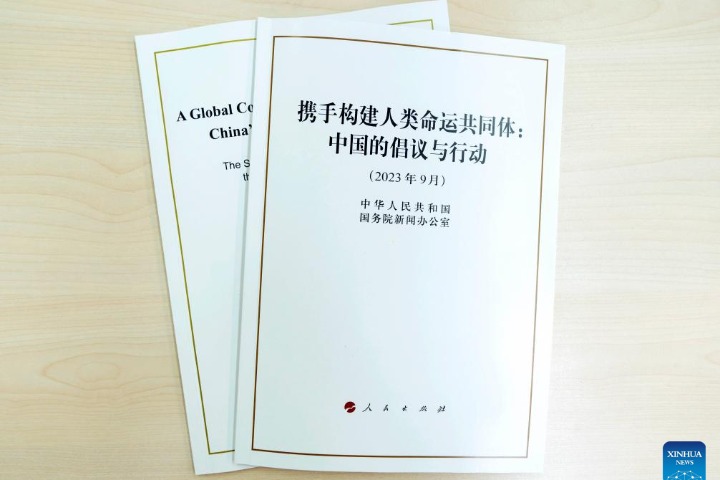
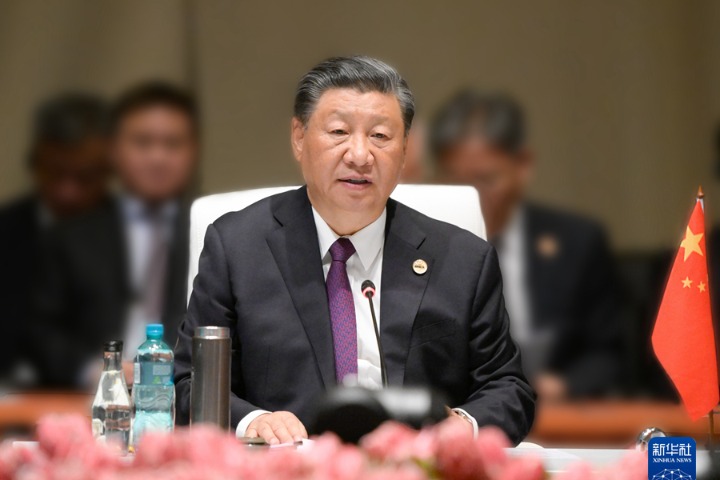



 英語點(diǎn)津微信
英語點(diǎn)津微信 雙語小程序
雙語小程序